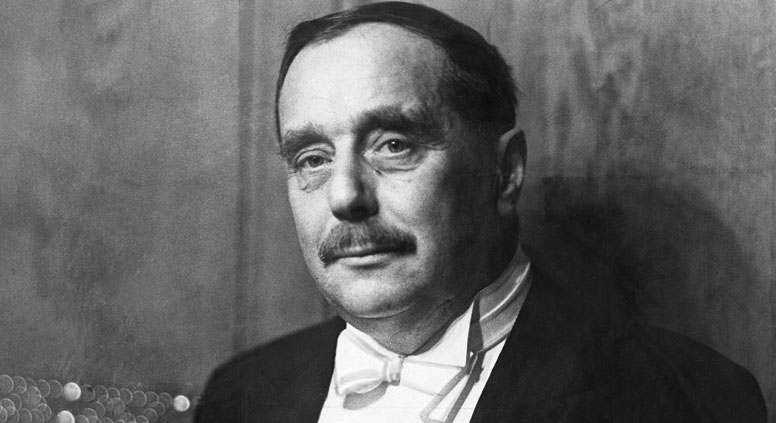
H.G. Wells met Lenin, Stalin and had a love affair with Maxim Gorky's former mistress. Source: Ullstein bild /Vostock-Photo
When H.G. Wells
Wells was very observant during his 1920 trip, and his memoir marvels at how people continued to live, despite the strain and difficulties of post-war Soviet life. In St. Petersburg he was amazed to find flower shops still thriving: “It is a wonderful fact, I think, that in this city, in which most of the population is already nearly starving, and hardly
Wells admired the resilience of the Russians he met, from a conductor who had fashioned a dinner jacket for performances, to scientists who were determined to keep researching despite a lack of resources. He pledged to aid these scientists and helped raise funds and support after he returned to London.
However the trip also sometimes provoked Wells's hostility at times. He describes being irritated by the number of statues and portraits of Karl Marx, whose “vast solemn woolly uneventful beard” constantly annoyed him: “A gnawing desire grew upon me to see Karl Marx shaved.
The 1920 trip was a chance to see old friends – and also to meet new people. Wells stayed with Maxim Gorky in St. Petersburg, where the two friends found they shared more than their love of literature. Wells began a romance with Gorky's former mistress, Baroness Moura Budberg, who became his official guide and translator. Many years later, Wells's son Anthony West described his father's intense adoration for Moura: “My father could not reason himself out of his intoxication with her, and however little future his passion might seem to have, he went home with it burning in him.”
Moura did eventually move to London in 1929 and became Wells's companion. This was a complicated but lasting romance; the writer John Gray suggests that “Wells was involved with many remarkable women, but he was drawn to none of them as he was to Moura Budberg.”
When Wells returned to the Soviet Union for his final trip in 1934, he asked Moura to accompany him. She refused, claiming it would be too dangerous, and he was devastated when he discovered she had secretly visited Gorky a few months previously. He describes their confrontation in his Postscript to an Experiment in Autobiography,and many have speculated whether Moura admitted to spying on Wells during and after his visit.
During his final trip, Wells interviewed Joseph Stalin. He challenged the leader, informing him that many people “regard your simple class-war antagonism as nonsense.” But after being so shocked by the state of St. Petersburg and Moscow in 1920, Wells also admitted
“I have already seen the happy faces of healthy men and women,” he told the leader, “and I know that something very considerable is being done here.” Nevertheless, he went on to write Babes in the Darkling Wood (1940), in which two young Stalinists become bitterly disillusioned.
The author David Lodge explains that “the first area in which Wells claimed specialist knowledge was the future.” Yet his observations of the past and present in Russia also claim an insight into a country in transition, leading him to speculate on all the ways a country might deal with adversity.
Dr. Dorothy Butchard is an academic researcher specializing in the study of literature and technology. She currently teaches 19th and
All rights reserved by Rossiyskaya Gazeta.
Subscribe
to our newsletter!
Get the week's best stories straight to your inbox